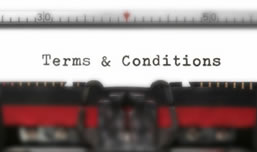Changes to fashion e-commerce small print
E-commerce has revolutionised fashion retail and many businesses, both large and small, have been selling online for years. Most will have got to grip with online terms and conditions, privacy policies and the various legal requirements of doing business in this way but recent changes need to be considered.
In June 2014, new consumer protection rules came in which apply to all businesses transacting with consumers and which create some particularly interesting issues for the fashion e-commerce model.
The changes
The Consumer Contracts (Information, Cancellation and Additional Payments) Regulations 2013 (Regulations), came into effect on 13 June 2014. They implemented the European Consumer Rights Directive in the UK and other EU Member States have virtually identical rules. All consumer facing businesses should, by now, have reviewed their:
- sales 'lifecycle';
- pre-contractual information;
- contract confirmation process;
- cancellation and returns and refund policies; and
- terms and conditions.
Those selling to consumers online should also have:
- made sure they comply with special pre-contractual information provisions; and
- ensured they clearly inform consumers at the point of entering into a payment obligation.
Why? Because:
- the cooling off period changed from 7 to 14 days;
- there are changes to pre-contractual information requirements, especially for online sales;
- refunds must be given within 14 days (rather than 30);
- consumers must be provided with standard cancellation forms for off-premises and distance contracts; and
- pre-contractual information requirements will apply to on-premises consumer contracts for the first time.
For full details of the changes, visit our Consumer Law Reform page.
Issues for fashion e-Commerce
 There are a number of provisions in the Regulations which are worth looking at in the context of fashion e-commerce beyond the most obvious changes to the cooling off period and pre-contractual information requirements. Some of these are clarified by guidance issued by the Department for Business, Industry and Skills (BIS) and the EC Guidance on the Regulations. Others are still somewhat unclear.
There are a number of provisions in the Regulations which are worth looking at in the context of fashion e-commerce beyond the most obvious changes to the cooling off period and pre-contractual information requirements. Some of these are clarified by guidance issued by the Department for Business, Industry and Skills (BIS) and the EC Guidance on the Regulations. Others are still somewhat unclear.
Partial cancellation
The Regulations state that when a consumer cancels a contract for the supply of goods, the trader must reimburse the original delivery costs. What happens, though, if the consumer only cancels part of the order which is commonplace in online fashion retail? Both the Regulations and the guidance around them are silent on this point. A safe approach would be to go ahead and refund the full delivery costs on partial cancellation and swallow any loss. An alternative would be to provide for a pro rata refund in the website terms and conditions but this could over complicate things. A robust approach would be to state that delivery charges are only refunded in full where the entire order is returned. In the absence of any enforcement action on this point, it is hard to predict what will be acceptable to the regulators but transparency is key. Whichever route is chosen, it must be clearly communicated to the customer in the terms and conditions.
Refunds
If a customer cancels a goods contract, the Regulations require that reimbursement must be without undue delay and not later than 14 days after:
- the day on which the trader receives the returned goods; or
- if earlier, the day on which the consumer gives evidence of having sent the goods back.
 Under the EC guidance on the Regulations "evidence" is a written statement from an established transport or postal service provider specifying the sender and recipient. This means that traders may need to refund the price of the goods before having received the returns. There is a risk that the goods may not reach the trader or may be damaged on receipt but the trader is, nonetheless, supposed to make the refund at this point.
Under the EC guidance on the Regulations "evidence" is a written statement from an established transport or postal service provider specifying the sender and recipient. This means that traders may need to refund the price of the goods before having received the returns. There is a risk that the goods may not reach the trader or may be damaged on receipt but the trader is, nonetheless, supposed to make the refund at this point.
Damage caused by the consumer
It is an occupational hazard with fashion e-Commerce (and, indeed, fashion retail in general) that the dishonest consumer can purchase an item, wear it and then return it. The Regulations have introduced some protection for traders. If the value of the goods is diminished as a result of the consumer handling the goods beyond what is required to establish the nature, characteristics and functioning of the goods, the trader may deduct an amount up to the total contract price from the refund or otherwise demand payment.
This all sounds sensible but, in practical terms, it's not always easy to deal with. The EC guidance suggests that the reference point is what the consumer would normally be able to do in a shop. This suggests the consumer can try the purchased clothing on but cannot wear it for any length of time. What if the consumer damages the packaging? It's reasonable for the consumer to remove the packaging in order to inspect and try on the item so this is not something they can be penalised for if they return it. What if the consumer takes the tags off in order to try the item on or, accidentally, tears them off? Theoretically the trader can deduct money from the refund but how much? And is it really worth it in terms of PR? On the other hand, if there has been genuine damage, for example, it's clear that the item has been worn, it's torn or stained, then the trader needs to take a view as to how much to deduct from the refund. As noted above, it will be harder to obtain compensation from a consumer once a refund has been given.
 Personalised items
Personalised items
Some exceptions to the right to cancel are provided for in the Regulations, including in relation to "bespoke or personalised goods". What exactly does this mean? The BIS guidance helps clarify the situation. An item which is "a product so specific to a particular consumer's needs that there is no other market for it once the consumer has cancelled the contract" will be considered to be bespoke. This means ordering a dress in a particular colour and size (for example) will not qualify for the exception. However, if an item of clothing is ordered with someone's full name printed on it or is made to measure, the consumer will not be able to cancel the contract within the 14 day period under the Regulations (although there will be other remedies available if the clothing is defective in any way).
If you have any questions on this article please contact us.


Debbie Heywood
Debbie considers the impact of recent consumer protection legislation on fashion e-commerce.
"It is an occupational hazard with fashion e-commerce (and, indeed, fashion retail in general) that the dishonest consumer can purchase an item, wear it and then return it. The Regulations have introduced some protection for traders."

